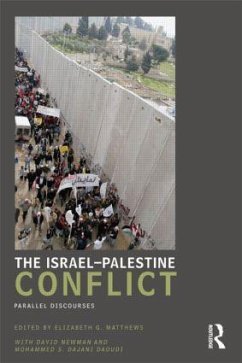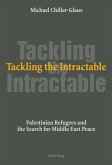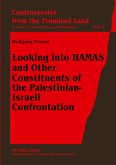The conflict between the Israelis and the Palestinians is considered intractable by many, and is frequently characterised by the violence between the two sides. In attempts at peace, the starting point for negotiations is a cessation of violence; beneath this, however, lies a plethora of other issues to be addressed.
This unique text brings together Israeli and Palestinian viewpoints on a number of key issues and topics, making clear the points of agreement as well as the views that divide. The chapters deal first with three issues that require compromise and resolution for a peace treaty to be realized - water, refugees, and borders, territory and settlements - and then with three important concepts that can either impede or promote peace: democracy, human rights, and peace culture and education. Thus, the book provides an invaluable opportunity to understand, at least in part, the divergent and even convergent interests and understandings of Israelis and Palestinians on issues and concepts important to the peace process. As such, it will be a valuable resource for courses on conflict resolution, the Middle East peace process, and political science.
Hinweis: Dieser Artikel kann nur an eine deutsche Lieferadresse ausgeliefert werden.
This unique text brings together Israeli and Palestinian viewpoints on a number of key issues and topics, making clear the points of agreement as well as the views that divide. The chapters deal first with three issues that require compromise and resolution for a peace treaty to be realized - water, refugees, and borders, territory and settlements - and then with three important concepts that can either impede or promote peace: democracy, human rights, and peace culture and education. Thus, the book provides an invaluable opportunity to understand, at least in part, the divergent and even convergent interests and understandings of Israelis and Palestinians on issues and concepts important to the peace process. As such, it will be a valuable resource for courses on conflict resolution, the Middle East peace process, and political science.
Hinweis: Dieser Artikel kann nur an eine deutsche Lieferadresse ausgeliefert werden.
"Parallel Discourses is a good reader for an understanding of the Israel-Palestine conflict. The chapters on the key issues of the conflict are comprehensive and contain the perspectives of both the Israelis and the Palestinians." - Khinvraj Jangid, Jawaharlal Nehru University; Journal of International and Global Studies









